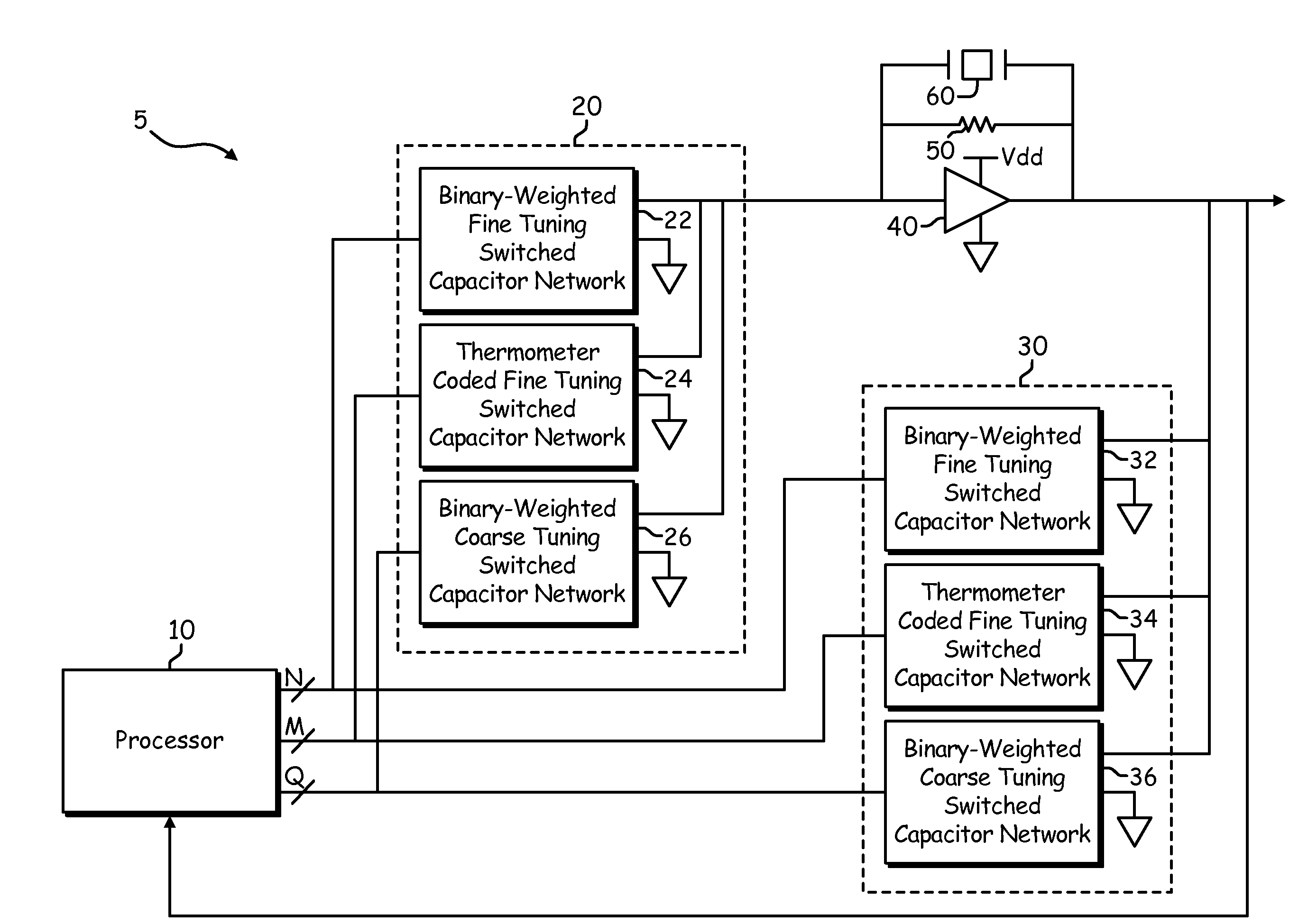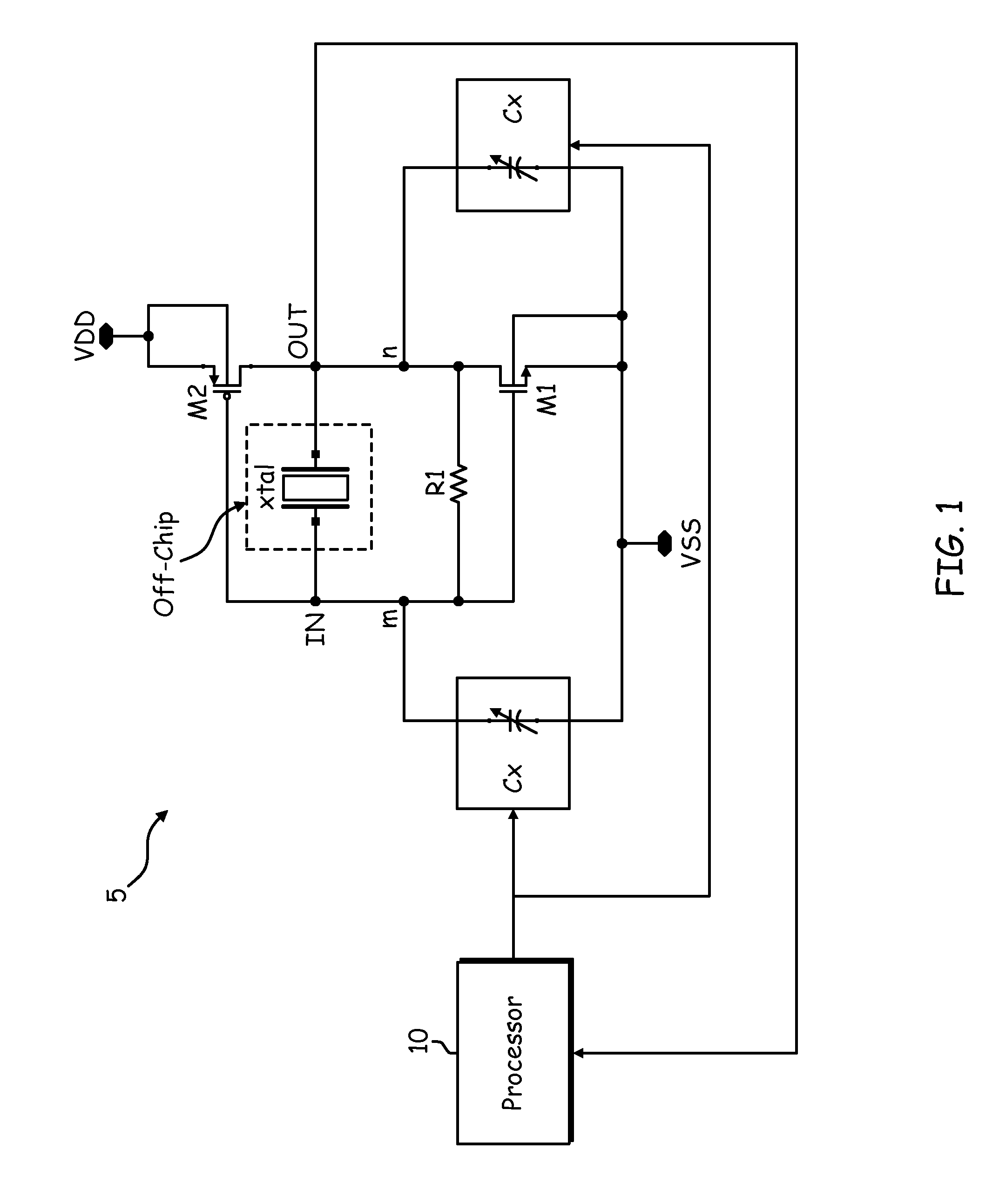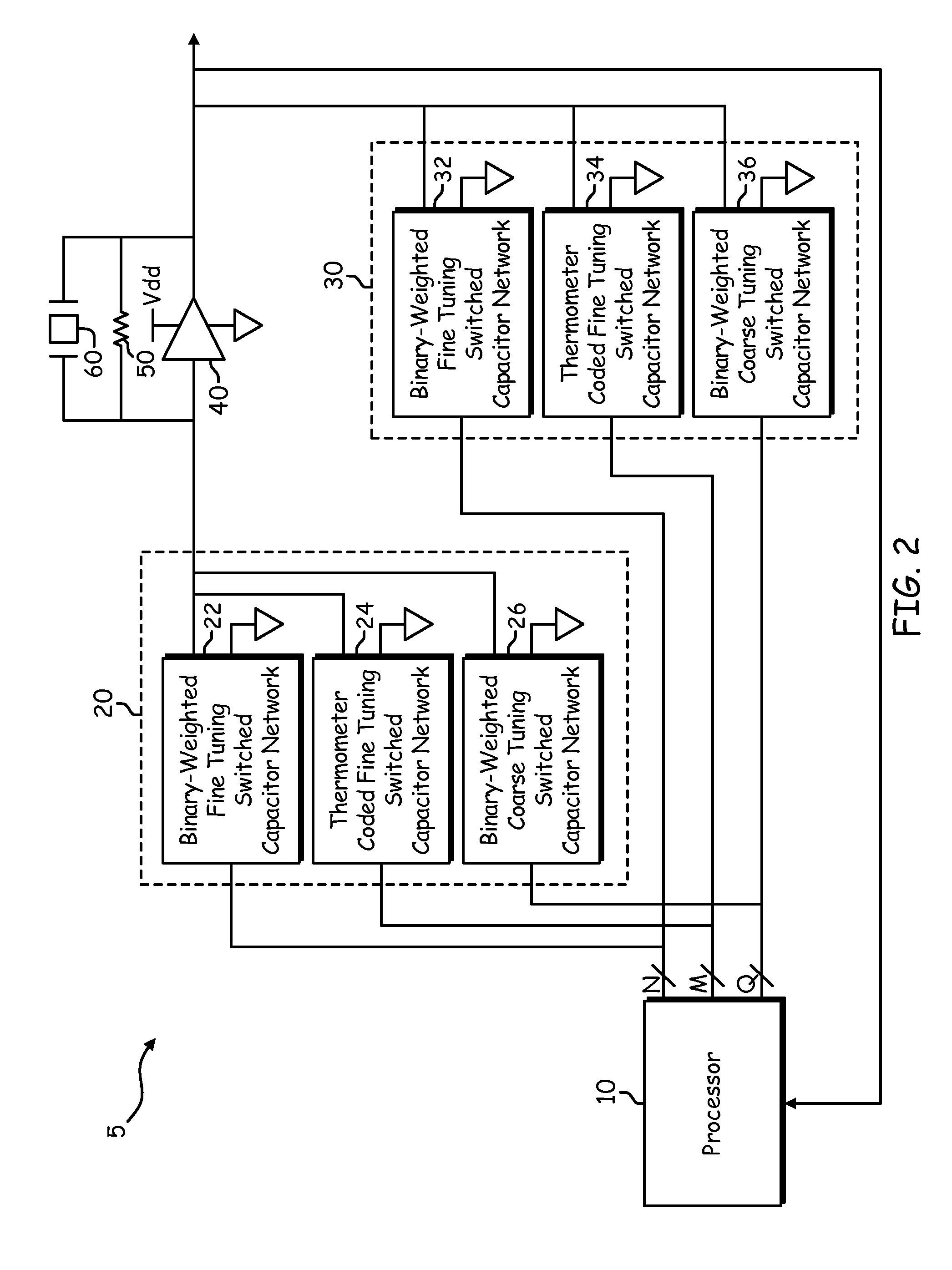Monotonic frequency tuning technique for DCXO in cellular applications
a frequency tuning and cell technology, applied in the field of crystal oscillator circuit tuning, can solve the problems of difficult elimination of code dependent glitches, difficulty in obtaining 0.01 ppm frequency accuracy, and difficulty in achieving monotonicity in frequency tuning
- Summary
- Abstract
- Description
- Claims
- Application Information
AI Technical Summary
Benefits of technology
Problems solved by technology
Method used
Image
Examples
Embodiment Construction
[0020]FIG. 1 depicts a simplified circuit diagram of an exemplary digitally-controlled crystal oscillator (DCXO) 5, in accordance with the present invention. The DCXO 5 includes a processor 10, a resonant crystal Xtal, and an oscillator drive circuit that includes a pair of transistors M1 and M2, a resistor R1 and a pair of load capacitor arrays, both designated by Cx. The resonant crystal may be formed from a variety of resonating crystalline materials, including but not limited to, quartz and tourmaline. For example, in an exemplary embodiment, the resonant crystal is formed from a piece of quartz that is precisely cut, sized and shaped to resonate at a particular frequency.
[0021]The DCXO 5 further includes an input node IN for receiving an input signal (i.e., the output of the oscillator drive circuit) and an output node OUT for outputting an output signal (i.e., an oscillation frequency). The resonant crystal Xtal is coupled between the input node IN and the output node OUT, and...
PUM
 Login to View More
Login to View More Abstract
Description
Claims
Application Information
 Login to View More
Login to View More - R&D
- Intellectual Property
- Life Sciences
- Materials
- Tech Scout
- Unparalleled Data Quality
- Higher Quality Content
- 60% Fewer Hallucinations
Browse by: Latest US Patents, China's latest patents, Technical Efficacy Thesaurus, Application Domain, Technology Topic, Popular Technical Reports.
© 2025 PatSnap. All rights reserved.Legal|Privacy policy|Modern Slavery Act Transparency Statement|Sitemap|About US| Contact US: help@patsnap.com



